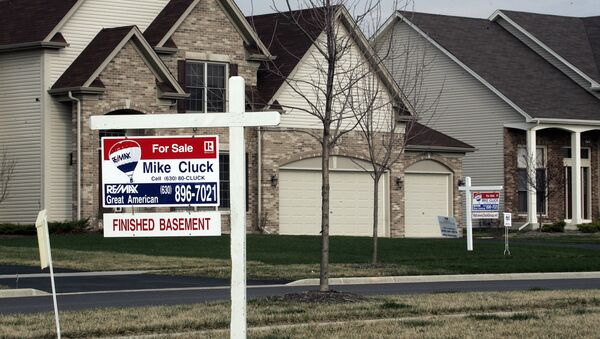Kristian Rouz – A set of fresh data from Commerce Department and National Association of Realtors (NAR) arrived Wednesday, indicating consumer spending barely gained in May, while advances in disposable income growth cooled in line with the dismal labour market dynamics posted that same month.
Meanwhile, news from the construction sector for May turned out to be hardly encouraging as well, with pre-owned home purchases dropping more than previously expected.
US consumer spending braked at adding 0.4 percent year-on-year in May, after having posted the previous month its greatest gains (1.1 percent) since 2009, according to a report from the US Department of Commerce. Effective incomes rose only 0.2 percent in May, way below previous forecasts, as the job market added only an insignificant amount of payrolls that month.
"With the confidence-sapping eruption in global financial markets continuing to play out, we expect spending momentum to slow in the coming months ahead, adding a layer of uncertainty to the U.S. economic outlook going forward," Millan Mulraine of New York-based TD Securities said.
Inflation-adjusted spending in May added 0.3 percent compared to 0.8 percent the previous month. Spending-tied prices index, contributing to a broader inflation measure, gained 0.2 percent in May. Meanwhile, disposable incomes (after-tax) climbed only 0.1 percent that month, suggesting a long-anticipated pickup in wages is still lagging behind.
In the housing market, purchases of pre-owned homes slumped more than expected in May. The NAR’s index of pending home sales plunged 3.7 percent to a reading of 110.8 compared to previous expectations of a 1.1 percent contraction. This is an unfortunate development as amid the government-claimed “full employment” (the official jobless rate below 5 percent, while ShadowStats suggest a 23 percent rate of unemployment), and the still very accommodative Fed interest rates the housing market is supposed to be expanding rapidly.
Overall, the economy is losing momentum closer to the end of the current business cycle. Private sector investment fell the most in six years in 1Q16, energy and utilities have underperformed last quarter as well, providing little grounds for optimism in preliminary Q2 assessments. Early this year, non-residential private fixed investment dropped 4.5 percent.
“The good news is that with okay, but not great growth, the economy has not developed imbalances that would indicate a recession is coming soon,” Gus Faucher of PNC Bank said.
The US economy has been expanding for the past six consecutive years, one of the longest periods of uninterrupted growth in recent history, yet, the growth has been moderate at best, almost 1 percent below historic average.





